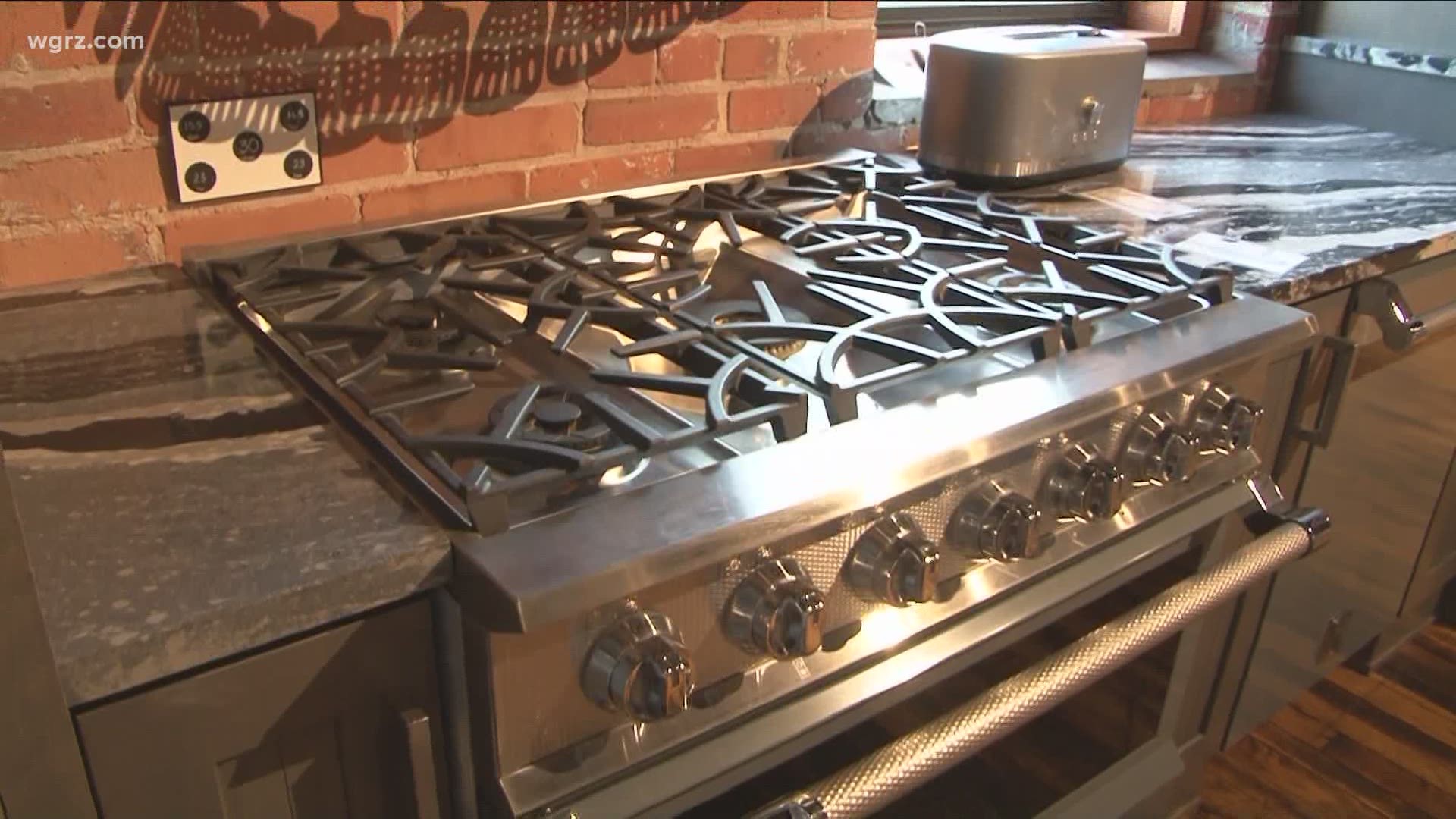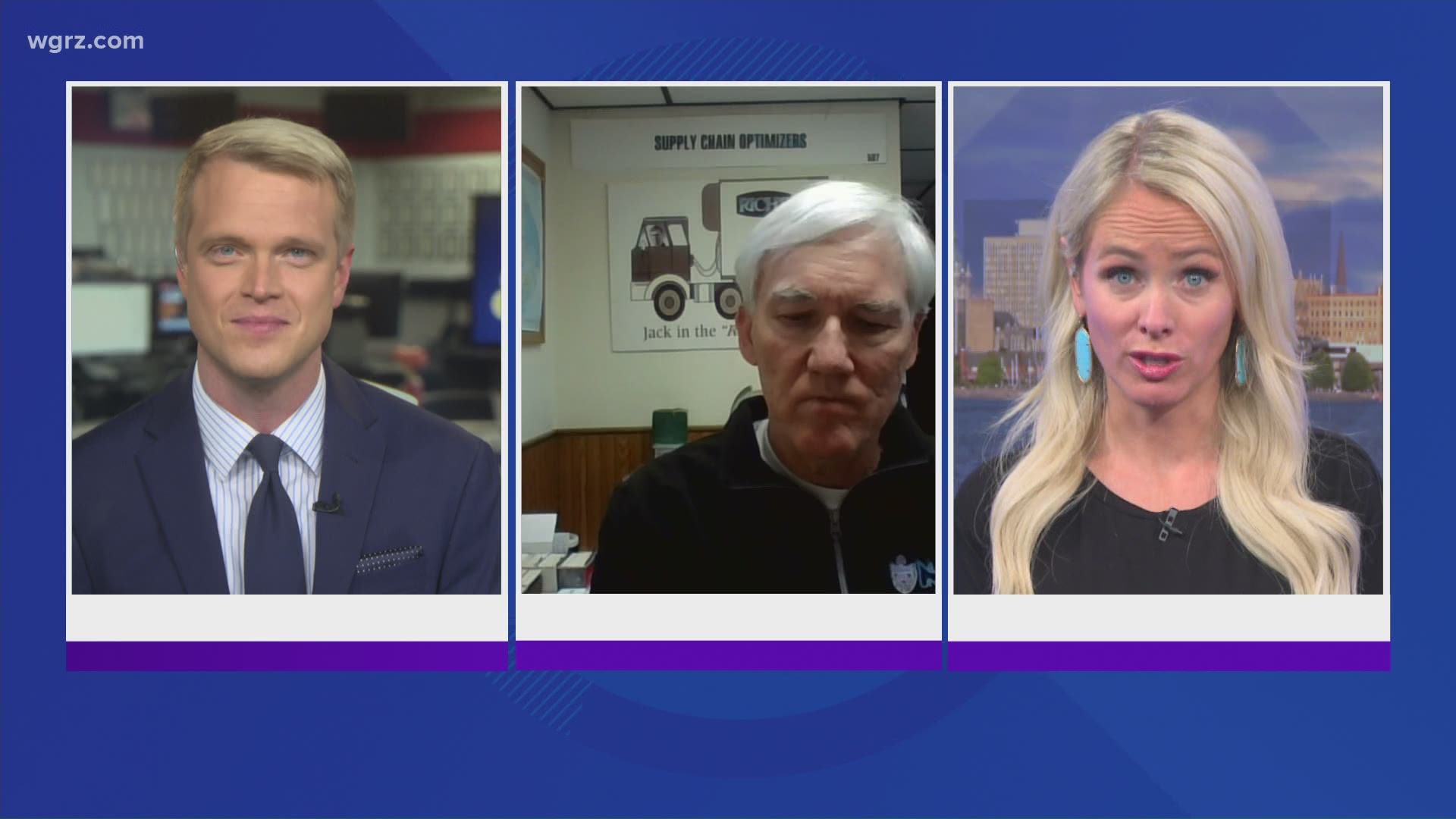BUFFALO, N.Y. — COVID-19 threw a wrench in many businesses, causing doors to shut and several layoffs. Restaurants, gyms, theaters, clothing stores, these are just a few industries that have taken a hard hit since March.
Meanwhile, stores that sell home appliances are thriving. With refrigerators, freezers, dishwashers, and washers and dryers flying out doors, business is booming in this industry.
The only problem is, manufacturers are having a tough time keeping up, especially with minimal staff and minimal supplies.
Kevin Telaak has been selling home appliances for over 30 years in Buffalo. His company, Artisan Kitchens & Baths, has been steadily running. But since the pandemic, business has been soaring.
Telaak says, he's never seen such an unexpected surge in demand.
"The industry sold about three years worth of freezers in a month. There was no supply in the supply chain," he said.
Since March, home appliance sales have hit record highs, while supplies have continue to dwindle.
"They have factories where they have to socially distance people. They have factories where they have to shut down. They are also reliant upon overseas manufacturers for things like wiring harnesses and other parts and when they can't get them, they can't build," Telaak says.
The supply chain is not only affecting home appliances.
Jack Ampuja, president of Supply Chain Optimizers, says the food industry is also seeing this trend. When people panic-buy, there is not enough to go around for everyone.
"The supply chain is pretty finely tuned. When people start to hoard that begins to upset things," Ampuja says.
Whether your trusty old fridge is shutting down or you just bought a new house and are looking for a shiny new one, experts say you will likely find yourself waiting for quite a while - whether for service or for a new product.
So, what can you do?
"Be patient," Telaak says.
What were once luxuries are not anymore, do your best to responsibly take care of what you have. And if you are in the market for a new product, not to worry, Telaak says high demand does not mean that prices are necessarily going up.


